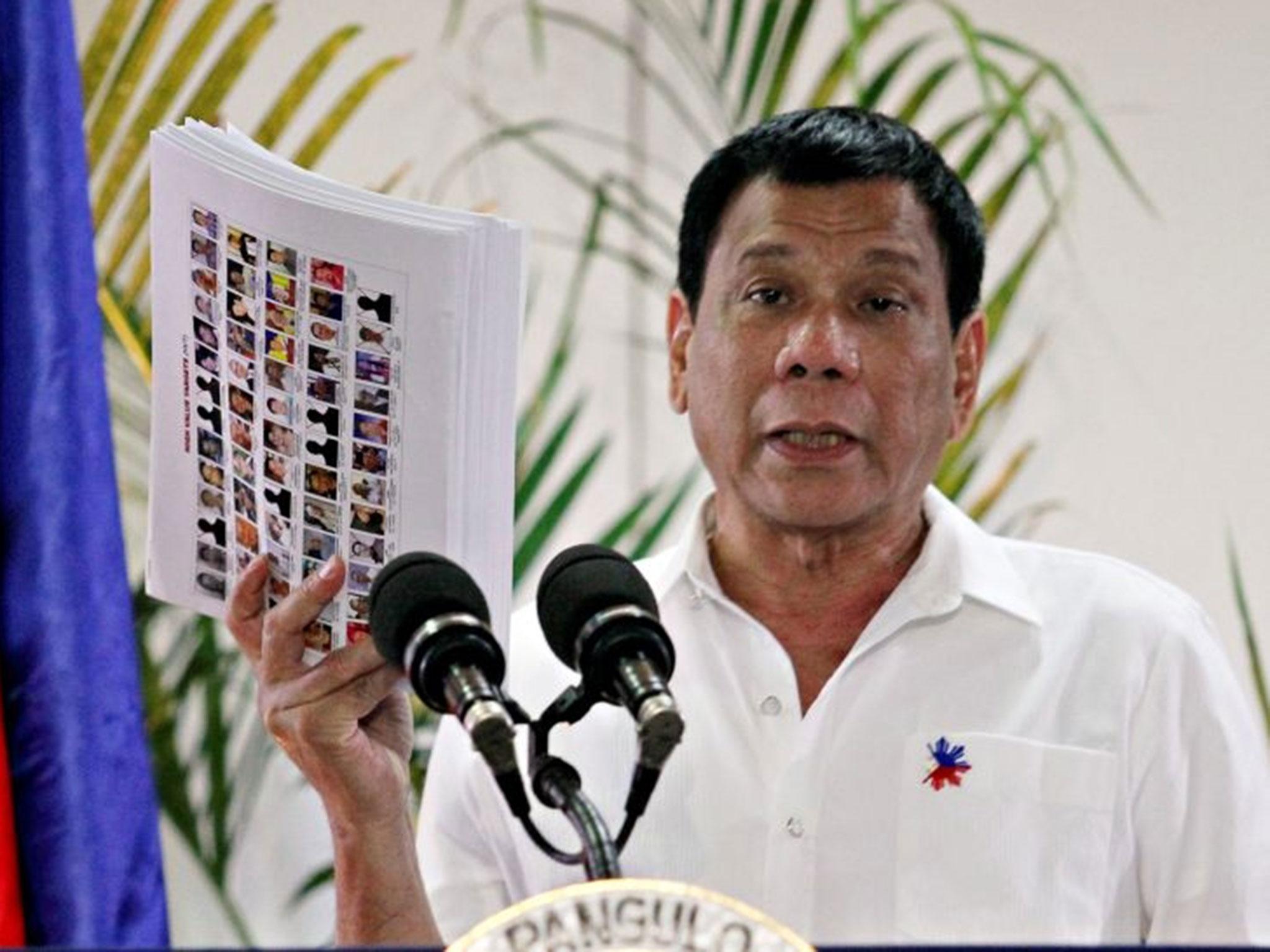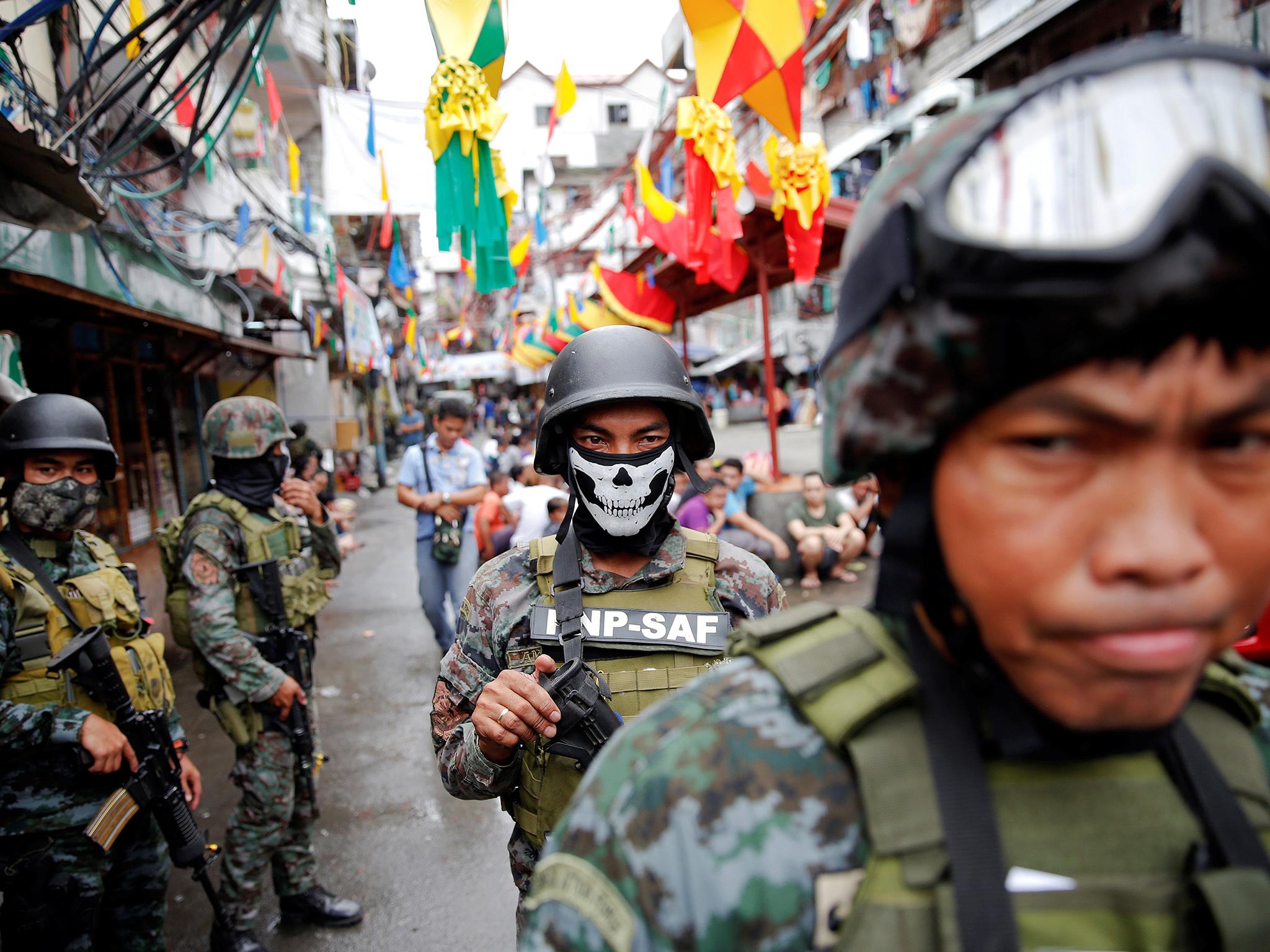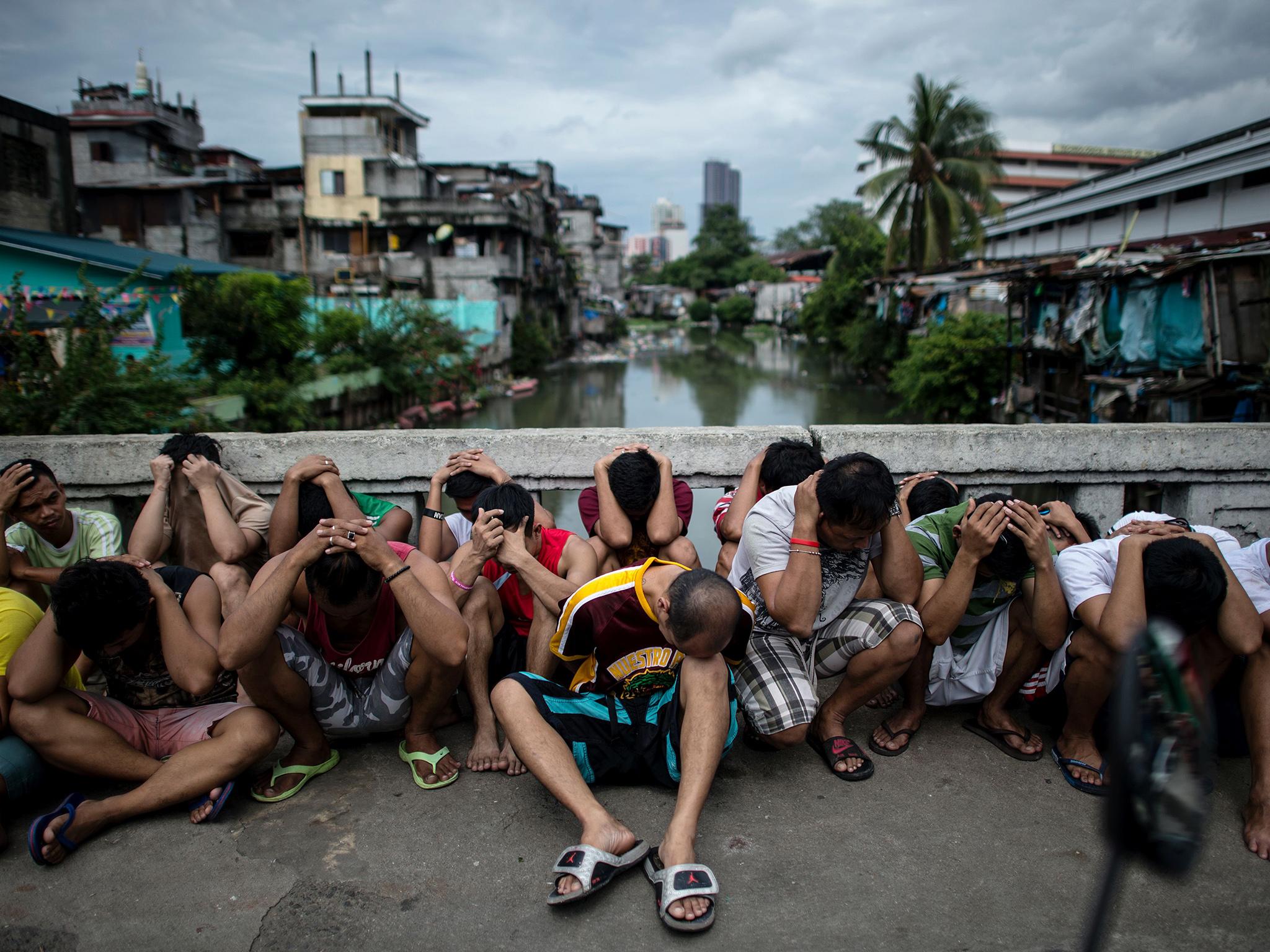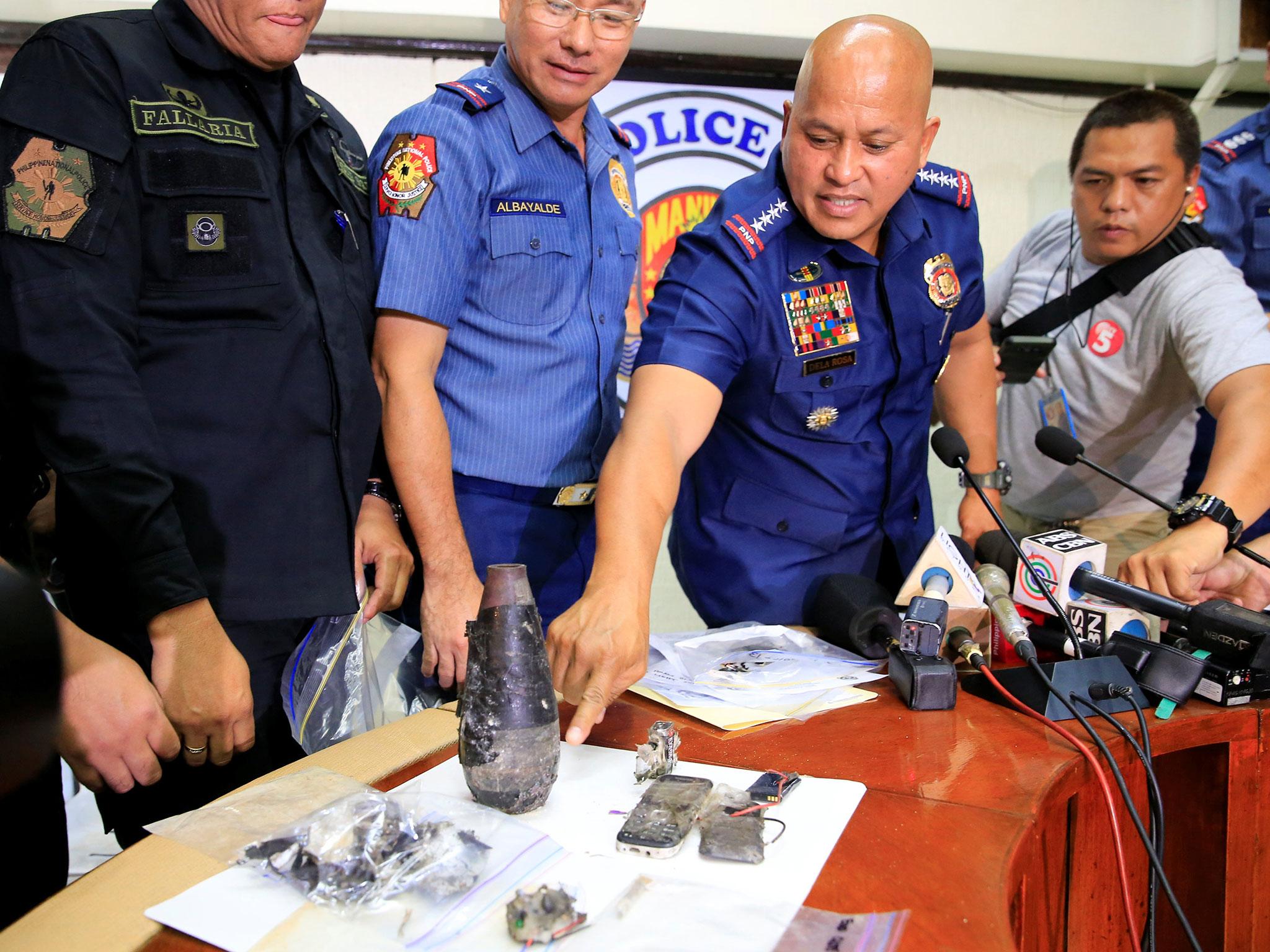Taking selfies with Duterte's chief executioner
Aside from President Rodrigo Duterte, Ronald dela Rosa is the central figure in the country’s ongoing drug crackdown

The women are always the first to start closing in. Stifling giggles, they elbow each other and slide up to his side to have their photo taken with the shaven-headed, cherub-cheeked man. The mischievous ones plant a quick peck on his cheek before shimmying away, while the truly bold make amorous proclamations: “Sir, I love you so much!”
The men are more restrained. They shake his hand and pat his back like an old college buddy would, before asking for what they really want – a photo. Ronald dela Rosa, director general of the Philippine National Police (PNP), is treated more like a rock star than a policeman. Women sometimes scream or cry tears of joy when they see him; crowds flock to him in public, forcing his own men to huddle around him to protect him from adoring hands. A trail of fans follows him around the country.
As does a trail of dead bodies. Aside from President Rodrigo Duterte, dela Rosa is the central figure in the country’s ongoing drug crackdown that began on 1 July – dela Rosa’s first day on the job, one day after Duterte took office. Since then, more than 5,800 people have been killed by either police operations or vigilantism.
Photos of corpses whose faces are usually mummified in packaging tape, left in the street with cardboard signs labelling them “pushers” or “drug dealers”, have triggered international outrage and condemnation. Human rights groups have denounced what they say are lawless acts of violence that mainly target poor young men.

It has earned international notoriety for Duterte – and for dela Rosa, the title of country’s top cop. But for the majority of Filipinos, that’s no obstacle to adulation of dela Rosa, almost universally known as “Bato” – The Rock. The shaven-headed, amiable police chief is seen as a hero.
His message resonates with the public. Neil, a 33-year-old cab driver, sees the sweeping counternarcotics effort as concrete action by the government. “We work throughout the night and we sometimes go into small alleys to bring passengers home. When we drop them off, we are left alone in our cabs. By getting addicts off the streets, the police are protecting people like me.”
Mariz Umali, a journalist for Philippine news network GMA, has covered the police beat for four years. She says Bato’s popularity is a new phenomenon compared to previous police chiefs. “I think it’s his authenticity. He’s super approachable, honest, and real,” said Umali. “Like his boss.”
Certainly, no other police chief has inspired the creation of his own video game or the creation of more than a handful of Facebook fan pages.
In person, dela Rosa is courteous, charming, and goofy, often in a self-deprecating way, eschewing Duterte’s penchant for vulgarities. When we met for an interview, he offered an apology for an earlier time when I’d been rudely blocked from meeting him. In a country where womanising is common, his loyalty to his wife has earned him plaudits. But his charisma is only part of the story; underpinning his cuddly image is the popularity of the murderous “war on drugs” itself.
A national survey published in September by the well-regarded Social Weather Station found 84 per cent of respondents at least somewhat satisfied with the government’s drug campaign – although 71 per cent said it’s “very important” that suspected criminals be caught alive.
To understand the lukewarm condemnation of the drug war is to understand how the established justice system is seen as absolving the rich and punishing only the poor. One out of five courts does not have a judge or prosecutor, clogging up trials and meaning cases can take anywhere from five to 15 years to be settled.

The result is that “justice has become an illusion for Filipinos,” said Carlos Budit, spokesperson for the Defense of Human Rights and Dignity Movement (iDefend), a non-governmental organisation. For some, the instantly gratifying retributive justice of the bullet can seem appealing compared to the drawn-out process of the courts. The war on drugs cuts through the power of connections and money in the regular court system, with 83 per cent of Filipinos surveyed by the Social Weather Station saying it doesn’t discriminate by class. “Our justice system is very slow and riddled with corruption. That’s why others subscribe to this kind of retribution and circumventing of due process,’ said Budit.
Duterte plays on this pent-up anger at every press conference, always hammering home the same image of the country. Drugs are the root of all crime, and the Philippines is on the brink of becoming a narco-state that will collapse if the cancer is not cut out – at any price – and that he, as president, is the only one who can save the country. Duterte claims there are more than 3 million drug users in the Philippines, and once said he would happily slaughter them, “like Hitler”.
But statistics from the Dangerous Drugs Board show that there are only 1.8 million users among the country’s population of more than 100 million.
“Duterte’s consistent fearmongering seems like an odd match to dela Rosa’s softer approach, featuring such approaches as mascots in his image conveying a ‘Just say no’ message through song and dance. But they all work together to justify and soften the brutality of the drug war,” said Chito Gascon, chairman of the Commission on Human Rights in the Philippines.
But one thing remains clear, however cuddly his image: in the war on drugs, dela Rosa is Duterte’s hammer. “I know what the President wants, and he knows what I can do. Our common feature is our desire to give a very comfortable life to our law-abiding citizens and give hell to criminals,” dela Rosa told me in a September interview, adding that he can virtually read the President’s mind.
Their partnership has spanned three decades. Dela Rosa first met Duterte in 1986 as a young lieutenant, when both made their careers in Davao, in the southern Philippines. When Duterte assumed the presidency, he promoted dela Rosa PNP chief.
“We are winning the war on drugs. I feel that people feel that they are safer,” dela Rosa said, dismissing claims of brutality. He cited the number of users who have turned themselves in as a result of the drug war’s Operation Tokhang, whose name is a portmanteau of words meaning “to knock” and “to plead”.

“I don’t know how to satisfy the critics,” dela Rosa told me, scratching his head. “Isn’t it humane enough that we got 720,000 drug users and pushers to surrender without filing a case against them or jailing them? We knock on their doors, we plead with them to stop using drugs.”
It is termed a “community-based” approach and was first pioneered in Davao. Locally elected village chiefs and residents are charged by police to compile neighbourhood watch lists of suspected drug users and dealers. Based on this list and other intel, the national police conduct house-to-house visits and invite alleged users to come to the precinct to sign a waiver promising they will stop using drugs or submit themselves to a rehabilitation programme.
At least, that’s how it is on paper. In practice, this “humane approach” has brought a body count of more than 2,000 deaths – all, the police say, in self-defence after suspects opened fire on them.
But the details don’t hold up. Take father and son Renato and Jaypee Bertes, drug users and part-time dealers, who were apprehended and later killed while in police custody. Police claim that the two men tried to seize an officer’s firearm in an attempt to escape even though forensics reports showed evidence of beatings. Jaypee, the younger Bertes, suffered a broken arm. Two of the officers involved in the case have been charged with murder; the case remains one of the few currently under investigation.
In other cases, those who have surrendered after signing a waiver have been found dead, prompting some in local communities to refer to the neighbourhood watch list as a “kill list”, where former drug users become targets of vigilante-style killings by masked men on motorcycles.
Maximo Garcia, of Pangasinan province, had turned himself in at the suggestion of village officials. He signed a waiver attesting that he would no longer do drugs and then went home. Three days after, two masked men on a motorcycle stormed into his house and shot him three times. Garcia survived the home invasion but his five-year-old granddaughter, Danica May Garcia, did not. A stray bullet made her the youngest casualty of the so-called war.
The police are careful to segregate the casualties into “legitimate police operations” like drug raids and undercover operations and those by vigilante groups. Dela Rosa stands by his men on the clashes with the police and commits to investigate the gangland killings.

But some human rights groups are sceptical. “We question the obvious similarities and pattern of the [police] reports [on these killings]. Sometimes it seems like they just cut and paste those reports,” said Jose Manuel Diokno, chairman of the Free Legal Assistance Group (FLAG).
Yet despite the atrocities, the anti-drug campaign has begun to slowly transform the image and boosted the morale of the Filipino police, long plagued by corruption and an enduring reputation for incompetence. Police had long been implicated in the drug trade, allegedly recycling drugs from buy-bust operations, repacking them into smaller, more salable packets, and distributing them to “runners” who peddle them on the streets. With monthly salaries that start at just £197 for the lowest-ranking officers – higher than the minimum wage, but still scant – drug running and bribery has been a tempting prospect for many in the police force.
Duterte and dela Rosa have pledged to double police salaries. Perhaps even more importantly, Duterte has given his all-out support and a promise of protection to the police: “Do your duty, and if in the process you kill 1,000 persons because you were doing your duty, I will protect you,” he said during dela Rosa’s appointment ceremony. A United Nations special rapporteur called it a “licence to kill”, but for a force long dismissed as corrupt and inept, it was a vote of confidence which goes straight from the commander in chief all the way down to rookie officers.
“I have been a police officer for a long time. We had never heard a president say something like that – that he will protect us, go to jail for us. It is a boost to our morale. That’s why the police force is so gung-ho now,” said dela Rosa.
One police officer, who asked not to be named, confided: “When faced with going against drug lords, we always had to think twice. They have money and power. We are just policemen who have neither. If we went after them, they could go after our families. If something went wrong in an operation and [an administrative] case was brought against us, we would be suspended with no pay. We would have to pay for our own lawyer. Who would support our families?”
The war on drugs offered the PNP a chance to finally emerge as heroes answering the call to “serve and protect” with the assurance that their commander in chief will protect them; dela Rosa says it’s a wish come true. “It is my dream that the Filipino people will come to love the PNP. I hope to be remembered as the PNP chief who brought the police closer to the people.”

Whether the public will stick with the police through increasingly blatant atrocities remains in question. The police are becoming careless and operating with impunity. But Duterte continues to defend them, and like the good (read: blind) solider he is, Bato does, too. The public is beginning to feel they’re being had. Already, the cracks are beginning to show, resurrecting the mistrust of the police. In October, hundreds of demonstrators gathered outside the US Embassy in Manila to protest the American military presence in the country. Behind the wheel of his police van, Officer Franklin Kho attempted to quell the unrest: he rammed the crowd with his vehicle. There were no casualties but the footage of the violent dispersal stirred outrage.
Kho defended his action with a line coming from the same self-defence playbook used to justify police killings: “They tried to take the vehicle from us so I was forced to drive the car. We would have been hurt if they were able to get the vehicle.”
The following month, Albuera town mayor Rolando Espinosa, Sr was gunned down in his cell, with the police offering a convoluted story about how he had fired at them while already in custody. Espinosa and his son had been named by Duterte in public as drug dealers – offering no evidence – and Espinosa turned himself in to dela Rosa in person last August, fearing for his life.
The incident sparked outrage, even among lawmakers supportive of the drug war. Dela Rosa has promised a “thorough investigation” – by his own men. At a Senate hearing probing Espinosa’s death, Senator Panfilo Lacson, who was once a police director general himself, told dela Rosa: “If there’s anyone here who understands law enforcement, especially the life of a policeman, that’s me... I can give you so much leeway with your law enforcement. But when it becomes very blatant, with impunity, I think as chief PNP, you should do something... I think you should really give attention or equal importance, if not more importance, in addressing issues of policemen involved in these kinds of killings...”
Dela Rosa broke down and cried.
“Your honour, I cannot blame the public if they are losing trust and confidence in their police because I myself... I don’t know who to trust. I really, really want to reform the PNP because I love our organisation so much but it is very hard for me. I will never surrender. I can do this. I won’t back down. I will clean the PNP to the best of my ability.”
© Washington Post
Join our commenting forum
Join thought-provoking conversations, follow other Independent readers and see their replies
Comments
Bookmark popover
Removed from bookmarks